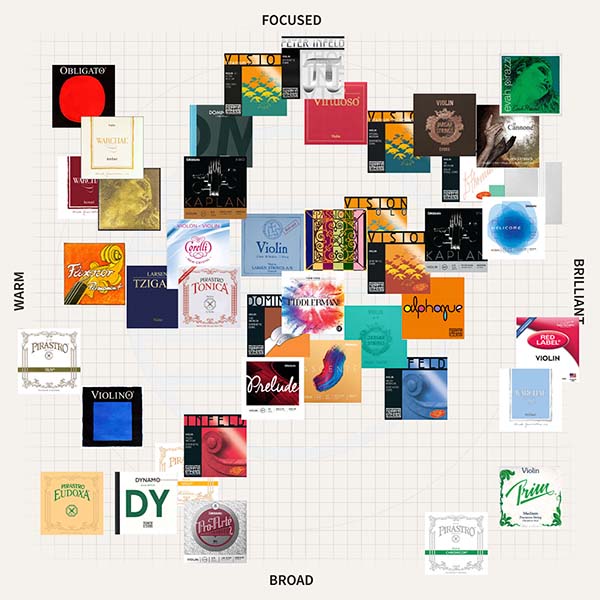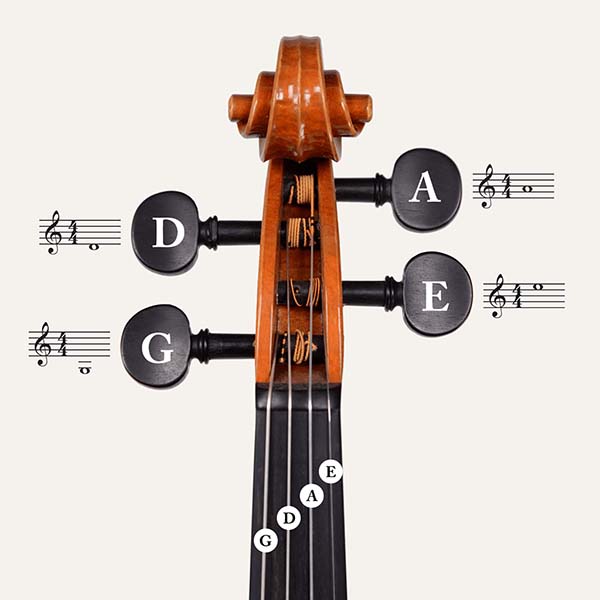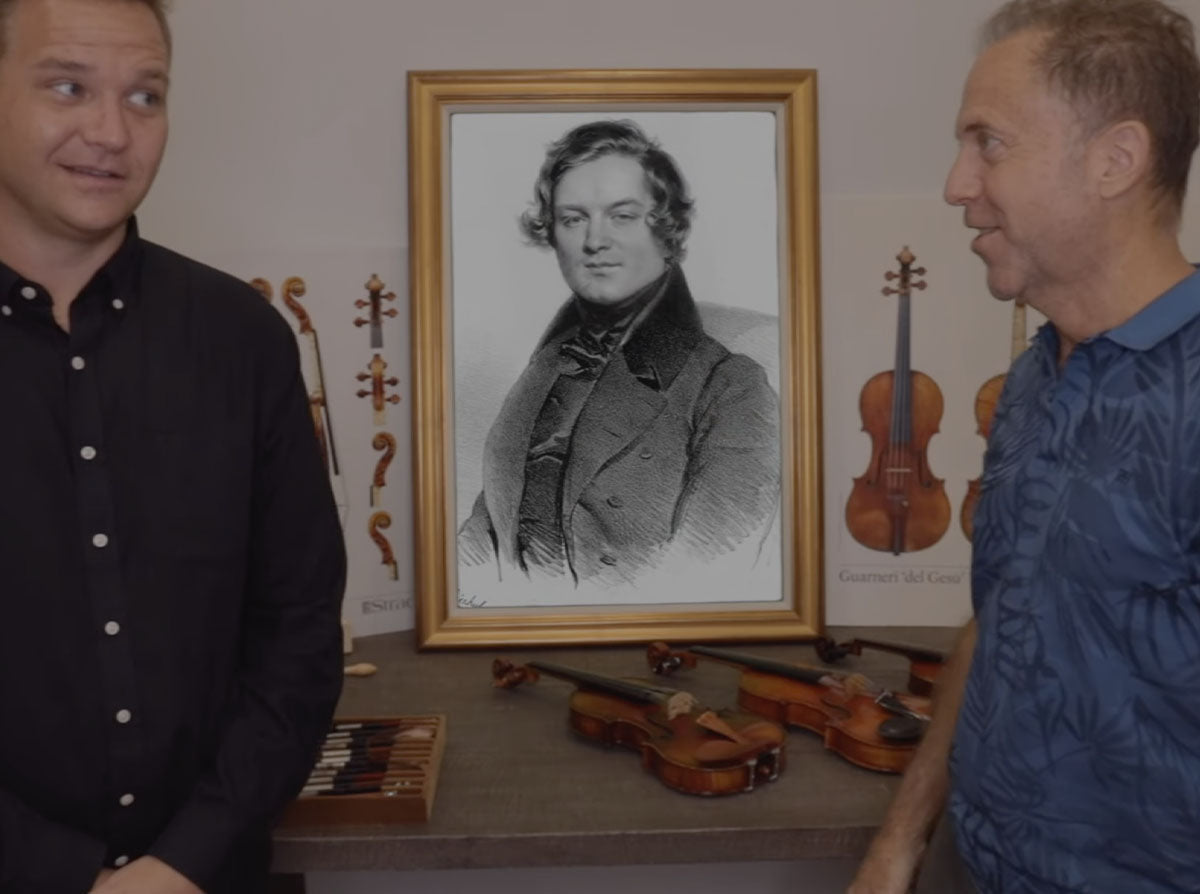We're delighted to share our very own "Fiddlershop Quartet" performing one of his most famous works "Träumerei" as well some great interesting facts about Robert Schumann you may not know. We also had some fun imagining what a conversation with the great composer would be like if he was still alive.
Schumann was very smart
The youngest of 5 children, Schumann’s father was a bookseller, which also implies that he was exposed to an array of literature. He was completely enamored by the books in his father’s store such that he considered a career as a writer or novelist. Great literary giants such as Bernard Shaw praised Schumann for his writing ability, making the claim that he was just as good a composer as he was a writer.
Schumann’s mom tended to be pushy, especially regarding career path
As it turns out, Schumann’s mother did not want him to pursue a career in music because a degree in law would be much more prestigious. To appease his mother’s wishes and to ensure that he got his inheritance, he left for law school in Leipzig. There were stories told that Schumann did not attend lectures often as he was more interested in studying music, literature, hanging out with beautiful women and drinking. For a few months he studied the piano seriously with a celebrated teacher, Friedrich Wieck, and thus got to know Wieck’s nine-year-old daughter Clara, a brilliant pianist who was just then beginning a successful concert career.
He was engaged to someone else before marrying Clara
In 1834 Schumann became engaged to Ernestine von Fricken, but long before the engagement was formally broken off (January 1, 1836), he fell in love with 16-year-old Clara Wieck. Clara returned his kisses but obeyed her father when he ordered her to break off the relationship. Schumann found himself abandoned for 16 months, during which he wrote the great Fantasy in C Major for piano. In 1837 Schumann formally asked Clara’s father for permission to marry her, but Wieck evaded his request. The couple were finally married in 1840 after Schumann had gone to court to set aside Wieck’s legal objection to the marriage.
He made his first suicide attempt soon after leaving law school.
Schumann’s brother and sister-in-law passed away from complications arising from the 1833 cholera epidemic. Their deaths were too much for Schumann to handle, and he experienced his first case of extreme depression, which caused him to try commit suicide for the first time in 1833.
Being a father was everything to Schumann, and he was an extraordinary one. Fathers at the time tended to be distant, reserved, and authoritative. Schumann was the opposite. He played games with his eight children, read to them, and took walks with them. He kept a diary for them of major events — like discovering a bird's nest. And he was an early advocate of kindergartens, which had been developed in Germany around 1840. Schumann's music was also affected by his love for his children. He wrote pieces directly inspired by their activities, as well as works written for children in general. These were not the usual boring sonatinas, but imaginative and entertaining works, like those he published in the Album for the Young Op. 68 in 1848. He was captivated by the idealism and innocence of childhood and tried to represent it in another set of piano pieces, the Kinderszenen (Scenes from Childhood), Op. 15 from 1838. These were conceived for adults as a recollection of their own childhood. The last two in the set are "Child Falling Asleep" and "The Poet Speaks." It was Schumann's way of showing the connection between the two, the poet representing the child in its natural and unconscious state.
The 1840s, the year of songs
After he got married, Schumann was so happy and in love that he could not stop composing new songs. This year became known as "Schumann’s Year of Song" which was characterized by 140 lieder including the celebrated cycle "Dichterliebe" (A poet’s love). Some other large-scale works include a piano concerto for his wife, the opera “Genoveva”, and many more works.
He was extremely shy and quiet
Schumann was incredibly shy and would prefer to listen rather than talk. Although he was shy in public, his music was extremely open as it often revealed what mood Schumann was in. He enjoyed taking walks in nature and preferred time for reflection in solitude. For instance, whenever he would undergo depression, there was great sadness in his music, but when he was well, his romantic composing side would return.
Schumann always had bouts with mental health
One can detect in the works of Schumann’s last years evidence of his impending mental demise. But he had been mentally unstable all his life, haunted by fears of insanity since the age of 18. The change of style became noticeable in the music of the early 1850s—the increasing angularity of his themes and complication of his harmony—may be attributed to other causes, including the influence of J.S. Bach. Because he suffered from depression all through his life at a time when mental illness was deeply misunderstood, he lived quite a troubled existence. Eventually, his symptoms became too much, and he was sent to a mental asylum where he passed away. Schumann was rightly at the pinnacle of composing in his day and was one of the early faces of German Romantic musical figures of the trend and period.
Great links for information on Schumann that was also partially used on this blog:
- https://www.cmuse.org/robert-schumann-facts/
- https://www.nch.ie/Online/default.asp?BOparam::WScontent::loadArticle::permalink=Behind-the-Music-Ten-Facts-About-Robert-Schumann
- http://kidsmusiccorner.co.uk/composers/classical/schumann/#:~:text=Some%20interesting%20facts%3A,want%20Schumann%20to%20marry%20her






2 comments
Fiddlershop
Hi Catherine!
Thanks for reading and for watching! All the best to you from all of us at Fiddlershop 🤩
Hi Catherine!
Thanks for reading and for watching! All the best to you from all of us at Fiddlershop 🤩
Catherine Young
LOL. .thanks for the beautiful music and reminder to honor Schumann.
LOL. .thanks for the beautiful music and reminder to honor Schumann.